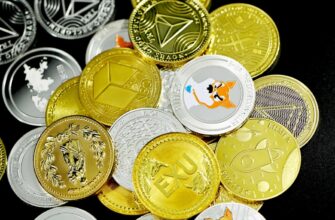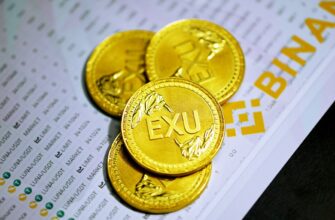- Is Crypto Halal? Mufti Menk’s Perspective & Islamic Finance Guide
- Who is Mufti Menk?
- Core Islamic Finance Principles
- Mufti Menk’s Stance on Cryptocurrency
- Major Shariah Concerns About Crypto
- When Crypto Might Be Halal: Practical Guidelines
- Halal Alternatives in Digital Finance
- Frequently Asked Questions
- 1. Did Mufti Menk declare Bitcoin haram?
- 2. Can I mine cryptocurrency Islamically?
- 3. Are stablecoins like USDC halal?
- 4. How do I pay Zakat on cryptocurrency?
- 5. Which scholars support crypto?
- Conclusion
Is Crypto Halal? Mufti Menk’s Perspective & Islamic Finance Guide
With cryptocurrency reshaping global finance, Muslims worldwide ask: Is crypto halal according to Islamic principles? Esteemed scholar Mufti Menk offers nuanced guidance on navigating digital assets while upholding Shariah compliance. This comprehensive analysis explores his views, key Islamic finance principles, and practical considerations for Muslim investors.
Who is Mufti Menk?
Mufti Ismail Menk is a globally recognized Islamic scholar from Zimbabwe, serving as the Grand Mufti of Zimbabwe’s Muslim community. With over 20 years of scholarly work, his fatwas (Islamic rulings) reach millions through social media and international lectures. His approach blends traditional scholarship with contemporary issues, making him a trusted voice on modern financial dilemmas.
Core Islamic Finance Principles
To evaluate cryptocurrency’s permissibility, we must first understand key Shariah requirements for financial transactions:
- Prohibition of Riba (Interest): Earning or paying interest is strictly forbidden
- Avoiding Gharar (Excessive Uncertainty): Transactions must have clear terms and avoid speculative risk
- Ban on Maisir (Gambling): Investments shouldn’t resemble games of chance
- Asset-Backed Value: Currency must have intrinsic worth or widespread acceptance
- Ethical Compliance: Funds cannot support haram industries (alcohol, gambling, etc.)
Mufti Menk’s Stance on Cryptocurrency
In multiple lectures and social media responses, Mufti Menk adopts a cautiously permissive position with critical conditions:
- Not Inherently Haram: Crypto isn’t automatically forbidden like interest-based transactions
- Usage Determines Permissibility: “If used correctly as currency without speculation, it may be acceptable”
- Speculation Warning: Day trading and volatile investments resemble gambling (haram)
- Due Diligence Required: Muslims must verify blockchain projects avoid haram activities
- Tax Compliance: Adherence to local financial laws is obligatory
He emphasizes: “The intention behind usage matters significantly. Are you facilitating trade or gambling on price swings?”
Major Shariah Concerns About Crypto
Islamic scholars identify several potential red flags in cryptocurrency:
- Extreme Volatility: 20%+ daily price swings violate gharar principles
- Lack of Intrinsic Value: Unlike gold or fiat currency, most cryptos aren’t backed by tangible assets
- Anonymity Risks: Potential use in illicit activities (money laundering, dark web transactions)
- Proof-of-Stake Concerns: Some scholars question whether staking rewards constitute riba
- Centralization Issues: Many projects contradict crypto’s decentralized ethos through whale dominance
When Crypto Might Be Halal: Practical Guidelines
Based on Mufti Menk’s principles, consider these compliance strategies:
- Long-Term Holding Only: Avoid frequent trading; treat crypto as a stored value
- Choose Ethical Coins: Select projects with real-world utility (e.g., payment systems, supply chain solutions)
- Verify Shariah Certification: Look for coins vetted by organizations like AAOIFI or Shariyah Review Bureau
- Transparent Blockchains: Prefer networks with traceable transactions to avoid haram activities
- Pay Zakat: Calculate and distribute 2.5% annually on crypto holdings above nisab threshold
Halal Alternatives in Digital Finance
Consider these Shariah-compliant options:
- Islamic Crypto Projects: X8X, Islamic Coin (ISLM), and Haqq Network
- Gold-Backed Tokens: Pax Gold (PAXG) or Perth Mint Gold Token (PMGT)
- Equity-Based Investments: Stocks in halal companies via platforms like Wahed or Islamicly
- Sukuk (Islamic Bonds): Asset-backed debt instruments
Frequently Asked Questions
1. Did Mufti Menk declare Bitcoin haram?
No. He avoids blanket declarations, instead advising case-by-case evaluation based on usage, project ethics, and risk levels.
2. Can I mine cryptocurrency Islamically?
Potentially, if: 1) Mining rewards aren’t interest-like, 2) Equipment is owned (not leased with interest), 3) Energy sources are ethical.
3. Are stablecoins like USDC halal?
Generally more compliant due to price stability, but verify reserve audits and ensure no interest accrual.
4. How do I pay Zakat on cryptocurrency?
Calculate 2.5% of your crypto’s market value annually if it exceeds the nisab (current gold value ≈ $4,800). Distribute to eligible recipients.
5. Which scholars support crypto?
Alongside Mufti Menk’s conditional approval, Mufti Faraz Adam and Sheikh Haitham al-Haddad permit crypto with similar restrictions.
Conclusion
Mufti Menk’s approach to cryptocurrency emphasizes intentionality and ethical alignment over absolute prohibitions. By avoiding speculation, selecting transparent projects, and maintaining zakat obligations, Muslims can potentially participate in crypto markets while honoring Shariah principles. Always consult qualified scholars for personal financial decisions and remember: “The halal is clear, and the haram is clear” (Bukhari).








